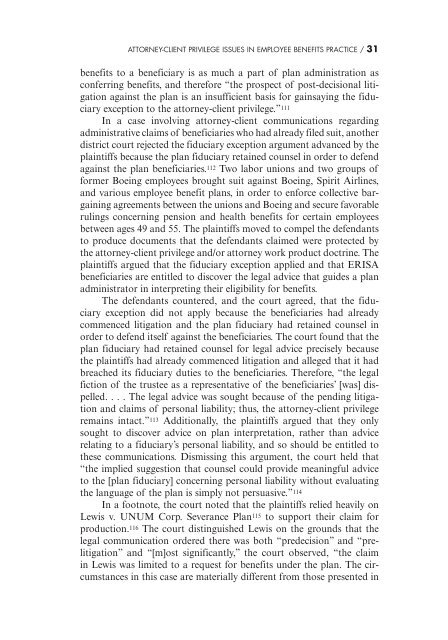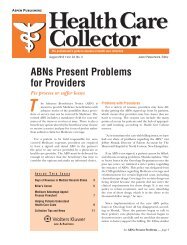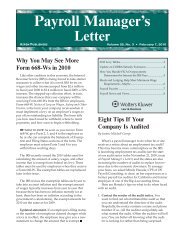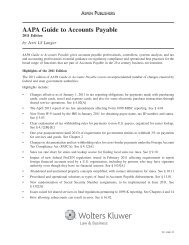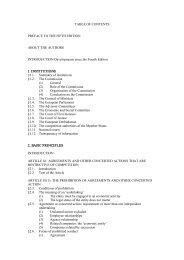journal of pension planning & compliance - Kluwer Law International
journal of pension planning & compliance - Kluwer Law International
journal of pension planning & compliance - Kluwer Law International
You also want an ePaper? Increase the reach of your titles
YUMPU automatically turns print PDFs into web optimized ePapers that Google loves.
ATTORNEY-CLIENT PRIVILEGE ISSUES IN EMPLOYEE BENEFITS PRACTICE / 31<br />
benefits to a beneficiary is as much a part <strong>of</strong> plan administration as<br />
conferring benefits, and therefore “the prospect <strong>of</strong> post-decisional litigation<br />
against the plan is an insufficient basis for gainsaying the fiduciary<br />
exception to the attorney-client privilege.” 111<br />
In a case involving attorney-client communications regarding<br />
administrative claims <strong>of</strong> beneficiaries who had already filed suit, another<br />
district court rejected the fiduciary exception argument advanced by the<br />
plaintiffs because the plan fiduciary retained counsel in order to defend<br />
against the plan beneficiaries. 112 Two labor unions and two groups <strong>of</strong><br />
former Boeing employees brought suit against Boeing, Spirit Airlines,<br />
and various employee benefit plans, in order to enforce collective bargaining<br />
agreements between the unions and Boeing and secure favorable<br />
rulings concerning <strong>pension</strong> and health benefits for certain employees<br />
between ages 49 and 55. The plaintiffs moved to compel the defendants<br />
to produce documents that the defendants claimed were protected by<br />
the attorney-client privilege and/or attorney work product doctrine. The<br />
plaintiffs argued that the fiduciary exception applied and that ERISA<br />
beneficiaries are entitled to discover the legal advice that guides a plan<br />
administrator in interpreting their eligibility for benefits.<br />
The defendants countered, and the court agreed, that the fiduciary<br />
exception did not apply because the beneficiaries had already<br />
commenced litigation and the plan fiduciary had retained counsel in<br />
order to defend itself against the beneficiaries. The court found that the<br />
plan fiduciary had retained counsel for legal advice precisely because<br />
the plaintiffs had already commenced litigation and alleged that it had<br />
breached its fiduciary duties to the beneficiaries. Therefore, “the legal<br />
fiction <strong>of</strong> the trustee as a representative <strong>of</strong> the beneficiaries’ [was] dispelled.<br />
. . . The legal advice was sought because <strong>of</strong> the pending litigation<br />
and claims <strong>of</strong> personal liability; thus, the attorney-client privilege<br />
remains intact.” 113 Additionally, the plaintiffs argued that they only<br />
sought to discover advice on plan interpretation, rather than advice<br />
relating to a fiduciary’s personal liability, and so should be entitled to<br />
these communications. Dismissing this argument, the court held that<br />
“the implied suggestion that counsel could provide meaningful advice<br />
to the [plan fiduciary] concerning personal liability without evaluating<br />
the language <strong>of</strong> the plan is simply not persuasive.” 114<br />
In a footnote, the court noted that the plaintiffs relied heavily on<br />
Lewis v. UNUM Corp. Severance Plan 115 to support their claim for<br />
production. 116 The court distinguished Lewis on the grounds that the<br />
legal communication ordered there was both “predecision” and “prelitigation”<br />
and “[m]ost significantly,” the court observed, “the claim<br />
in Lewis was limited to a request for benefits under the plan. The circumstances<br />
in this case are materially different from those presented in


